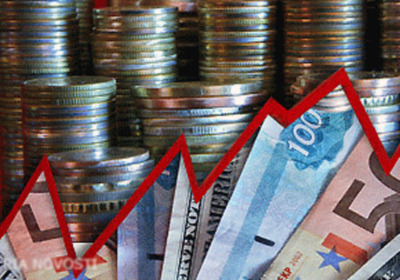Russia’s Shrinking Services Sector Less Miserable Than Before

(Moscow Times – themoscowtimes.com – Delphine d’Amora – April 3, 2015)
Cautious optimism is beginning to emerge in Russia’s services sector, even as business activity continues to drop and the Russian economy veers toward recession, a report by international bank HSBC found.
The services sector continued to shrink in March, but at a much slower rate than in February, when business activity dropped at its fastest pace since March 2009, according to HSBC.
HSBC’s seasonally adjusted Russia Services Business Activity Index, which tracks changes in the hotel, restaurant, transport, telecommunications and other service industries, recovered to 46.1 in March from a low of 41.3 in February. A score of more than 50 indicates an improvement from the previous month, and less than 50 a decline.
“Companies offered a more upbeat assessment of the future than at any time in the past seven months,” said Paul Smith, senior economist at financial services company Markit, which collaborated with HSBC on the survey.
More than a third of service providers polled for the index forecast some business growth from March levels over the next 12 months, the report said.
Nonetheless, service providers continued to cut jobs, with employment falling for the thirteenth month in a row, and the number of new businesses continued to drop.
The services sector is being hit particularly hard by Russia’s economic crisis, research firm Capital Economics said in a report earlier this week.
In contrast to the 2008-09 recession, when the service sector fared better than manufacturing thanks to a relatively stable ruble and state efforts to stimulate domestic demand, service industries are now under particular pressure.
Retail sales fell 6 percent over the first two months of this year compared to the same period in 2014, the result of high inflation – which hit 16.7 percent year-on-year in February – and a corresponding 10 percent decline in real wages, the report said.
“Inflation is set to remain extremely high over the course of this year, which will continue to hit real incomes. What’s more, fiscal policy is unlikely to provide any support to households,” Capital Economics analyst Liza Ermolenko said in the report.
HSBC’s Purchasing Managers’ Index (PMI), a composite indicator that tracks changes in the manufacturing sector, was 48.1 in March – significantly better than the 46.1 recorded in the services sector.
